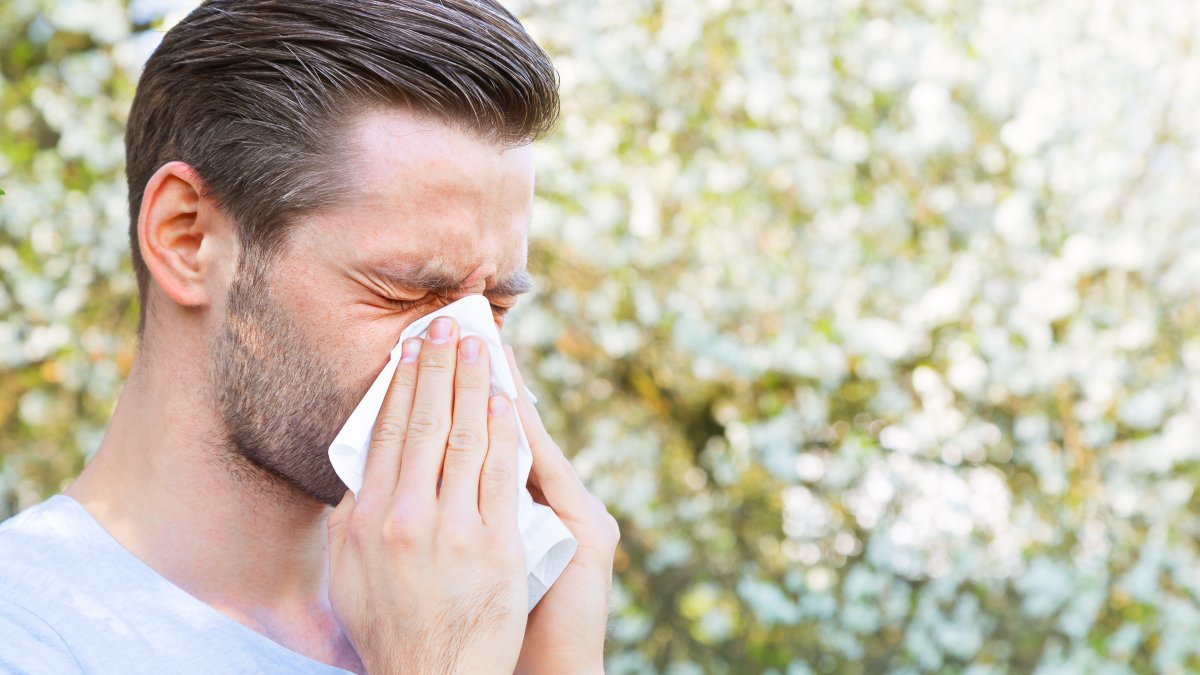With the arrival of spring, allergy symptoms are becoming more common across Türkiye, prompting experts to call for increased awareness and public health attention to allergic diseases. According to Dr. Osman Şener, a specialist in internal medicine, allergies and immunology at the University of Health Sciences (SBÜ) Gülhane Training and Research Hospital, around 20% of the population in Türkiye exhibits symptoms of allergies, making it a widespread and growing concern.
Speaking to Anadolu Agency (AA), Şener said that with the start of allergy season, outpatient clinics have seen a significant rise in patient numbers. This trend reflects the growing impact of respiratory allergies, particularly allergic rhinitis and asthma, which are commonly triggered by airborne pollen in the spring months.
“Pollen is one of the main factors triggering respiratory allergies such as allergic rhinitis and asthma,” said Şener. “It becomes a major issue during the spring in Türkiye, especially when trees, grasses and flowers begin to release pollen into the air.”
He specifically noted that in Türkiye’s central Anatolia region, where grain farming is widespread, the presence of grass and cereal pollens is a key reason behind the increased cases of allergic rhinitis and asthma during this season.
Respiratory allergies are generally divided into two categories: allergic rhinitis and asthma. Şener explained that the symptoms of allergic rhinitis include a runny nose with watery discharge, repeated sneezing, nasal congestion and itching in the nose.
“Sometimes, these nasal symptoms may be accompanied by issues in the eyes as well, such as redness, stinging, itching and watering known as allergic conjunctivitis.”
He added that if patients experience coughing, shortness of breath or wheezing, it may also indicate asthma. “Some individuals may show all of these symptoms, while others may experience either rhinitis or asthma more intensely. In some cases, only one of the symptoms may appear.”
Şener also pointed out that allergic symptoms are often confused with those of the flu, which tends to have a more severe course. Unlike allergies, the flu often presents with high fever, muscle and joint pain, and general fatigue.
“In viral infections, there may also be symptoms such as weakness, tiredness and mild fever. The nature of nasal discharge is also different. In bacterial infections, for example, the nasal discharge tends to be thick and yellow, rather than watery.”
According to Şener, all the patients who recently visited the outpatient clinic were showing allergic symptoms, with most diagnosed with either allergic rhinitis or asthma.
Emphasizing that allergic diseases are not rare in the population, Şener stated: “We can say that the prevalence of allergic conditions in society is around 20%. Allergies can be caused by substances in the air we breathe, in the foods we eat or in the medications we use. While most people don’t react to these substances, those with allergic tendencies have immune systems that perceive them as foreign and trigger a response. This response results in symptoms that can even harm the patient’s own health.”
Şener emphasized that pollen allergies are especially common during the spring season, as airborne pollen levels increase. He advised that outdoor activities during this period should be minimized or moved indoors when possible.
He warned that individuals with allergies should avoid areas such as gardens, farms and fields during peak pollen hours.
“In the early morning, pollen levels in the air are higher. Delaying outdoor activities to the afternoon can help reduce symptoms. It’s nearly impossible to avoid pollen completely, as these small particles can travel for kilometers through the wind. When you open a window or breathe in outdoor air while going to work or school, you are exposed to pollen. Reducing the amount of exposure can also reduce the severity of symptoms.”
While it is somewhat easier to protect against allergies caused by pets or house dust, Şener said it is much harder to avoid pollen. In cases where natural methods are not enough to manage symptoms, medical treatment may be required.




















































Be First to Comment